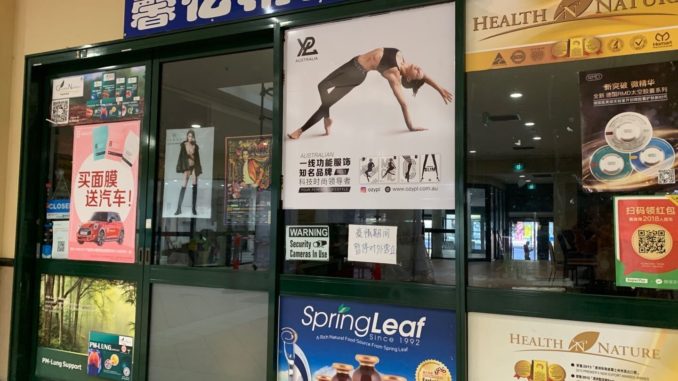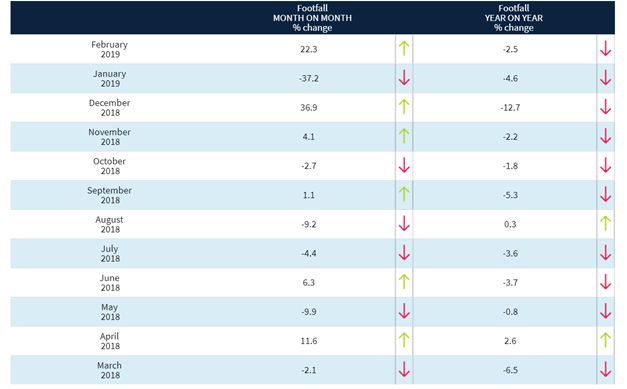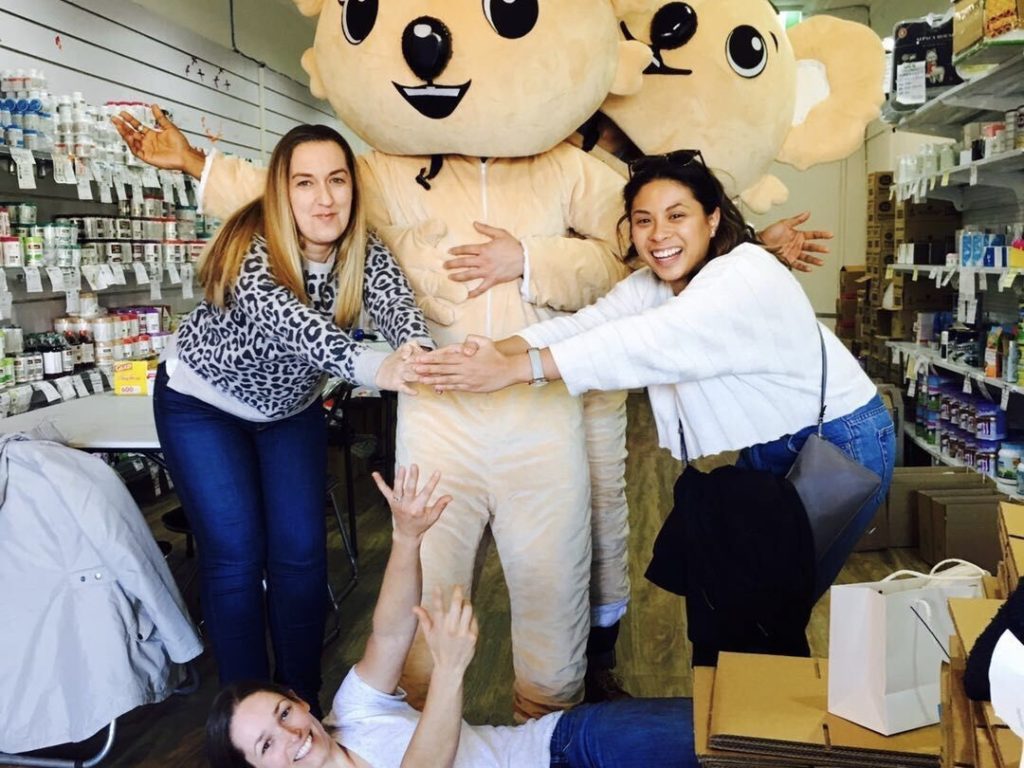
The covid-19 pandemic has hit the Australian economy hard, especially the retail industry. People have been hoarding toilet paper, and other daily grocery goods for fear of a shutdown of the economy. Some are concerned that the breakdown in the international logistics would mean that goods might soon run out of supply in supermarket shelves (Collett, 2020).
International logistics restrictions also have the dramatically the souvenir stores in Australian cities. Many of these stores have been doing great business in the past several years because most have been selling a large amount of Australian made goods back to China. When the economy is great and there is no threat of the pandemic, international logistics are smooth and there are a huge number of Chinese Australians would buy goods from these souvenir stores and ship them back to mainland China and other places around the world.
The prosperity of the souvenir store business is also guaranteed by the huge inflow of Chinese tourists visiting Australia territory. However, under the threat of the pandemic, the inflow of Chinese visitors to Australia has plunged dramatically. A potential traveling is a Damocles sword that threatens to shut down these businesses from operation completely (MacLellan, 2020).

(Australian Retail Industry Index copy from Oli research,Bloomberg)

(Australian retail store customer amount changes copy from ShopperTra)
The problems facing these Chinese souvenir stores is also a major issue for the tourism industry of Australia. The pandemic is likely to not go anywhere in the months to come, or even years. People operating these stores and businesses would have no choice but to leave with it and get used to the new normal.
People naturally suffer from the huge costs of operations for the souvenir stores. Such cost is unsustainable because the operating cost, e.g. rent and human resource costs, could not be covered by the limited sales revenue during the pandemic.
Poor retail performance amid the pandemic
The retail performance in AOV souvenir store and Xinyi gift store has both been critically hit and damaged by the pandemic, according to an interview with both of the store owners.


Both store owners claim that the business has been critically hit by the pandemic, as the flow of customers in the store on a daily basis has been cut almost by 80%. According to Ms. Wu, the owner of Xinyi, “customers are simply not visiting the stores anymore. You can see that streets are quite empty”. The huge reduction in the customer flow has been hurting the store pretty bad, as now there are simply much smaller amount of customer, leading to smaller amount of sales for those that do visit. The owner of AOV even claims that “it is even hard to get people around with discounts nowadays”, “which is quite easy before the pandemic”.


The store owners are both concerned that the pandemic is likely to cause great damage on the store operations. For stores in the retail industry, stock is very important as customers have to be able to access stock immediately once they decide to purchase in stores. Therefore, most stores keep a certain amount of stock in order to meet customers’ needs of purchase. However, this business model seems to have increasingly become less sustainable amid the pandemic. “We are facing a big problem of over stock. There is simply too much in our warehouse. We are starting to worry that some of the products are soon going to expire and we are going to lose a lot of money for it”. As fewer customers are shopping in physical stores, it seems that businesses operating in the retail industry would have to suffer even in the foreseeable future, as there is no positive prospect for a full-out economic recovery soon.

Picture above shows that the store shelves are filled with products and stock, while there is almost no customer visiting the store for shopping. According to the store owner, “There is simply not so many people coming around these days. We know what people are mostly concerned about. But there is simply nothing that we could do to make a difference right now”.
In effect, 2/3 of all retail businesses in Australia have reported being hit by the pandemic. Global retail sales also are negatively impacted, which also damaged retail sales of Australia, and businesses like the two souvenir stores we have covered in our interview. Statistics from IBIS shows that retail export reduces dramatically amid the pandemic, e.g. Australian wool and cotton. The slowdown of the retail industry in Australia is inevitable as a result of the government measures to contain the spread of the pandemic, including social distancing and related regulations, and disruption to the international logistics activities and supply chain. Apart from the major of the pandemic to the local demand in Australia, international demand also has been significantly damaged (. The free flow of people and inbound tourists from foreign countries, primarily China, has come to a halt during the pandemic.
The disruption to the international logistics activities and supply chain also has been felt by the two souvenir stores. Both owners claim that delivering items to Chinese consumers, who are the main buyers of the products in the gift stores, becomes increasingly harder and harder, as logistics services that can be accessed in Sydney either close down temporarily, or raise their prices of logistics dramatically.
According to the owner of Xinyi, “We used to be able to deliver our Australia-sourced products back to China conveniently. We store products in our gift shop. Chinese customers access our online website and social media, e.g. WeChat. And then they place an order. We deliver products to them via international logistics provided by Chinese logistics companies with outlets in Sydney streets. Everything happens smoothly. Now what? It is not just the offline stores that are suffering. E-commerce businesses also have been hit by the pandemic as well. Logistics outlets find themselves in shortage of laborers for packaging, warehousing and delivery. To make things worse, the customs are getting harder and logistics fees skyrocketed. Now it’s like $10 per kilo, which is almost double of what is used to be”.
References
Collett, M. (2020). Coronavirus update: More COVID-19 cases confirmed across Australia as shoppers stock up on toilet paper, groceries, ABC News, [online] available from: https://www.abc.net.au/news/2020-03-04/coronavirus-live-updates-toilet-paper-panic-buying-limits/12023040 [accessed on May 21, 2020].
IBIS World (2020) Coronavirus Update: Industry Fast Facts, [online] available from: https://www.ibisworld.com/industry-insider/coronavirus-insights/coronavirus-update-industry-fast-facts/ [accessed on May 21, 2020].
MacLellan, L. (2020). “Travel bubbles” are how the world will get moving again, Quartz, [online] available from: https://qz.com/1845717/new-zealand-and-australia-may-create-travel-bubble-between-them/ [accessed on May 21, 2020].




Be the first to comment